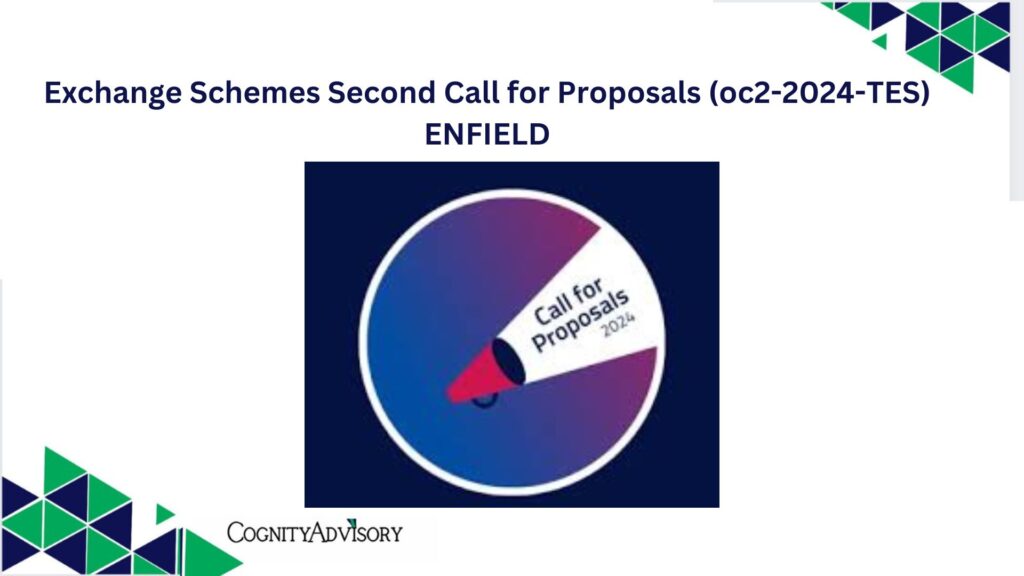ENFIELD
General Information
Opening date
15 August 2024
Deadline model
single-stage
Deadline dates
14 October 2024 17:00 (Brussels time)
Forthcoming
Expected duration of participation
3-6 months (Project execution timeframe: December 2024 – October 2025)
Total funding available
1 100 000,00 €
Project acronym
ENFIELD
Full name of the EU funded project
ENFIELD: European Lighthouse to Manifest Trustworthy and Green AI
Grant agreement number
101120657
Topic
HORIZON-CL4-2022-HUMAN-02-02 – European Network of AI Excellence Centres: Expanding the European AI lighthouse (RIA)
Submission & evaluation process
TYPE OF BENEFICIARY
- PhD candidates (who demonstrate their enrolment in a PhD programme)
- Post-docs (who demonstrate their employment at a university, research centre or business entity)
- Senior researchers (who demonstrate their employment at a university, research centre or business entity)
In case of a group of researchers applying the team needs to be composed by a minimum of one PhD candidate.
Researchers from ENFIELD partner organisations are not eligible to apply.
ELIGIBLE COUNTRIES
Applicants eligible to receive funding through this Open Call are researchers based in EU Member States or Horizon Europe associated countries only.
APPLICATION PROCESS
The application process is described in more detail in the Guide for Applicants available at https://www.enfield-project.eu/oc2_TES_2024.
Project proposals must be submitted by completing the application online, here: https://ec.europa.eu/eusurvey/runner/oc2-2024-TES.
It is strongly recommended not to wait until the last minute to submit the proposal. Failure of the proposal to arrive in time for any reason, including network communications delays or working from multiple browsers or multiple browser windows, is not acceptable as an extenuating circumstance. Late submissions are not permitted. The time of receipt of the application as recorded by the submission system will be definitive.
Proposals must include a Technical Annex. The template can be found here: https://www.enfield-project.eu/oc2_TES_2024.
Proposals must include a 2-minute video from the applicant presenting themself (or the group of researchers), submitted in English.
PROPOSAL EVALUATION
The evaluation will be done remotely by three senior researchers from ENFIELD partners’ scientific organisations.
The proposals will be scored (between 0- fail and 5- excellent) based on the criteria below:
1) Advanced state of the art: The extent to which the proposal is beyond the state-of-the- art and presents an innovative approach behind it (e.g., novel concepts and methodologies, development between or across disciplines, novel methods and algorithms addressing societal challenges).
2) Scientific approach: Feasibility of the proposed research methodology and working arrangements.
3) Dissemination and communication: Effectiveness of the proposed measures to exploit and disseminate the project results which must include methods (publications, presentations, workshops and/or webinars) and targeted audiences.
4) Technical and creative capacities: i) Demonstration of competences and skills of the researcher (or group of researchers) involved in the proposal. ii) Ability to carry out the activities for the proposed application. iii) Track-record of the team in scientific publications and similar projects. In case of an application submitted by a consortium, complementarity of researchers.Show less
Further information
ENFIELD Exchange Open Calls does not fund research itself but promotes interactions and strengthens research collaboration among researchers across Europe by granting employed researchers (PhDs, postdocs, senior researchers) with a mobility allowance of 2.400€/month (up to 14.400€ in total) for them to carry out research activities in ENFIELD partner organizations for 3-6 months.
Details are available at: https://www.enfield-project.eu/oc2_TES_2024.
Task description
Challenges in artificial intelligence:
Green AI:
- Green Generative Language Models
- Green AI in the Edge-to-Cloud Continuum
- Green AI Metrics
Adaptative AI:
- Adaptive AI on the Edge – Hardware Aware Differentiable Architecture Search
- Adaptive AI on the Edge – Resources-constrained Training
- Adaptative Robustness and Trustworthiness
- Brain-inspired AI – Developing intelligent systems that are effective and efficient continual learners
- Brain-inspired AI – developing intelligent systems that are better in generalization and robustness
Human-Centric AI:
- Evolving Symbolic Models for Decision-Making
- User Perspectives on Explainable AI
- Child-Centric AI for Personalized and Safe Educational Voice Assistants
- Novel Explainable AI Methods for Decision Making
Trustworthy AI:
- Secure Voice Biometrics with Fake Voice Detection
- Non-linear models for multivariate time series (vertical federated learning)
- Security and Robustness of AI systems
- Privacy and Compliance of AI systems
- AI in Distributed systems
Vertical Healthcare:
- ICU readmission analysis and support
Vertical Energy:
- Coordinated edge control of electric vehicles charging at low voltage grid (or microgrids)
Vertical Manufacturing:
- Context-agnostic human detection in robotic cell
- Self-X Integration in manufacturing domain
Refer to oc2-2024-TES_Catalogue_of_Challenges (https://www.enfield-project.eu/oc2_TES_2024) for details about each challenge, including the proposed scientific challenges, expected results, and mentor institutions.
